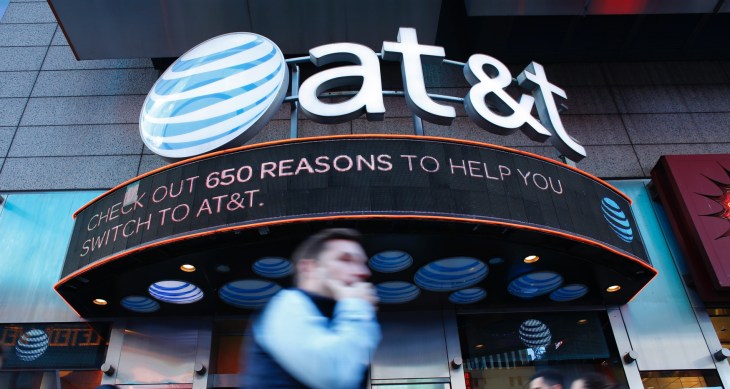Another major telco in the U.S. is making a big move away from being a full player in media services, and specifically content creation. Today AT&T said that it is combining its WarnerMedia division with Discovery Inc.
The deal is being structured as a “Reverse Morris Trust” transaction that will give AT&T $43 billion in a combination of cash, debt securities and WarnerMedia’s retention of certain debt. The deal will see AT&T shareholders receive stock representing 71% of the new company, while Discovery shareholders will have 21%, the companies said in an announcement.
Discovery President and CEO David Zaslav will lead the new, combined company. It’s not clear what role Jason Kilar, the CEO of WarnerMedia currently, will have, but his name is not mentioned in the press release. He is currently the CEO of Warner Media, AT&T CEO John Stankey confirmed in a press conference today..
The deal confirms rumors over the weekend, and it comes weeks after Verizon Communications announced that it would be selling off its own non-telecoms interests, Verizon Media, in a deal with Apollo Management in a $5 billion deal. [TechCrunch is a part of Verizon Media.] Zaslav said in a press conference with Stankey that the deal was hammered out in secret in “my Greenwich Village townhouse.”
In a press conference, executives from both firms said they expect the deal to be completed by mid-2022. They said they will be announcing a new name in due course, too.
At a time when streaming is the name of the game in media — this is where consumers are watching, and they are watching in more ways than ever before such as phones and tablets, and that means not just classic media companies, but also a wide range of technology companies are also investing big here — this is creating nothing short of a content colossus.
It will include some 200,000 hours of iconic programming with more than 100 of the “most cherished, popular and trusted brands in the world.” These include HBO, Warner Bros., Discovery, DC Comics, CNN, Cartoon Network, HGTV, Food Network, the Turner Networks, TNT, TBS, Eurosport, Magnolia, TLC and Animal Planet. The companies confirmed that they plan to include news in the largely entertainment-focused group. They say it will have annual revenues of approximately $52 billion, with adjusted EBITDA of approximately $14 billion, and a free cash flow conversion rate of around 60% and “at least $3 billion in expected cost synergies.” (That will be a tough one to see play out … that is a lot of cuts.)
On the other side, it’s something of a retreat for AT&T, which spent years building out (and fighting regulators) its own Warner empire, which had been intended to be the telco’s big play to not just provide the network for people to interact with services — be it voice, broadband or mobile — but the content itself.
Yes, AT&T shareholders will still keep 71% of the company, but this deal indicates that the company sees more value in building that body of content creation as its own entity independent of it. Not least, it will likely give those individual content companies significantly more empowerment for striking deals with other network providers without any vested interests in those deals. But in addition to that, it will free the media companies to explore which channels might be best for what they are producing, even when those channels might compete directly with AT&T.
In media and communications, there was a time when all people could talk about was “triple play” (TV, broadband and voice) and then “quad play” (adding in mobile) as the ideal suite of services to capture consumers and their entertainment and information appetites (and by association their media/advertising appetites). That’s proven to be a much more complicated dream to realize, however, so it’s no surprise to see the companies today touting what a great “pure play” deal this is for everyone.
“This agreement unites two entertainment leaders with complementary content strengths and positions the new company to be one of the leading global direct-to-consumer streaming platforms,” said AT&T CEO John Stankey in a statement. “It will support the fantastic growth and international launch of HBO Max with Discovery’s global footprint and create efficiencies which can be reinvested in producing more great content to give consumers what they want. For AT&T shareholders, this is an opportunity to unlock value and be one of the best capitalized broadband companies, focused on investing in 5G and fiber to meet substantial, long-term demand for connectivity. AT&T shareholders will retain their stake in our leading communications company that comes with an attractive dividend. Plus, they will get a stake in the new company, a global media leader that can build one of the top streaming platforms in the world.”
Zaslav and Discovery may have been a one-time competitor to the Warner empire but it’s a different tune now:
“During my many conversations with John, we always come back to the same simple and powerful strategic principle: These assets are better and more valuable together,” Zaslav said in a statement. “It is super exciting to combine such historic brands, world-class journalism and iconic franchises under one roof and unlock so much value and opportunity. With a library of cherished IP, dynamite management teams and global expertise in every market in the world, we believe everyone wins … consumers with more diverse choices, talent and storytellers with more resources and compelling pathways to larger audiences, and shareholders with a globally scaled growth company committed to a strong balance sheet that is better positioned to compete with the world’s largest streamers. We will build a new chapter together with the creative and talented WarnerMedia team and these incredible assets built on a nearly 100-year legacy of the most wonderful storytelling in the world. That will be our singular mission: to focus on telling the most amazing stories and have a ton of fun doing it.”
